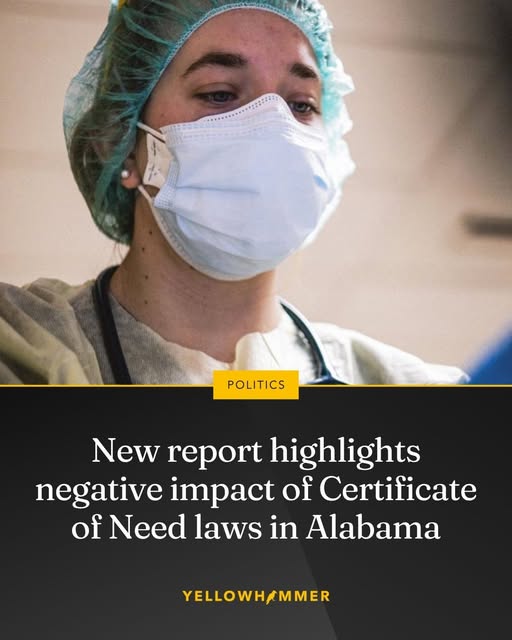Alabama’s Certificate of Need (CON) laws, which require healthcare providers to obtain state approval before establishing or expanding medical facilities and services, have been a subject of growing concern among policymakers, healthcare professionals, and advocacy groups. These laws, originally implemented to control healthcare costs and prevent overbuilding, have increasingly been criticized for stifling competition, limiting access to care, and driving up healthcare expenses. A recent report by Americans for Prosperity – Alabama (AFP-AL) underscores these issues, highlighting the detrimental impact of CON laws on the state’s healthcare system.
The AFP-AL report emphasizes that CON laws create significant barriers to healthcare access, particularly in underserved and rural areas. By requiring providers to obtain government approval before offering new or expanded services, these laws limit the ability of healthcare facilities to respond swiftly to community needs. This regulatory hurdle often results in delays in the establishment of essential services, such as ambulatory surgical centers and diagnostic imaging facilities, which are crucial for timely and effective patient care.
One of the most striking examples of the negative effects of CON laws is the case of Hoover Health Care Authority. In its attempt to open a new ambulatory surgery and medical diagnostic center, Hoover faced a protracted legal battle that lasted several months and cost over $1 million in legal fees. This extensive legal process was initiated by a competitor opposing Hoover’s application, demonstrating how incumbent providers can use CON laws to challenge and delay new entrants into the market. Despite the Hoover Health Care Authority ultimately receiving approval, the lengthy and costly process exemplifies how CON laws can hinder healthcare expansion and innovation.
Furthermore, the AFP-AL report highlights that Alabama’s CON laws are among the most restrictive in the nation, covering 47 types of healthcare services and facilities. This extensive regulation not only burdens new providers but also entrenches the market position of existing healthcare providers, reducing competition and potentially leading to higher costs for patients. The report suggests that repealing or reforming these laws could lead to increased competition, lower healthcare costs, and improved access to services across the state.
The negative impact of CON laws extends beyond urban centers like Hoover to rural communities, where access to healthcare is already limited. Studies have shown that states with CON laws have fewer rural hospitals and ambulatory surgical centers per capita compared to states without such regulations. Additionally, rural hospitals in CON states are at a higher risk of closure, exacerbating the challenges faced by residents in these areas. The AFP-AL report advocates for reforming CON laws to facilitate the establishment of healthcare facilities in rural regions, thereby improving access to care for underserved populations.
In conclusion, the AFP-AL report provides compelling evidence that Alabama’s Certificate of Need laws are detrimental to the state’s healthcare system. By restricting competition, delaying the introduction of new services, and increasing costs, these laws hinder the ability of healthcare providers to meet the needs of patients. Reforming or repealing CON laws could pave the way for a more accessible, affordable, and innovative healthcare system in Alabama, ensuring that all residents have timely access to the care they need.



